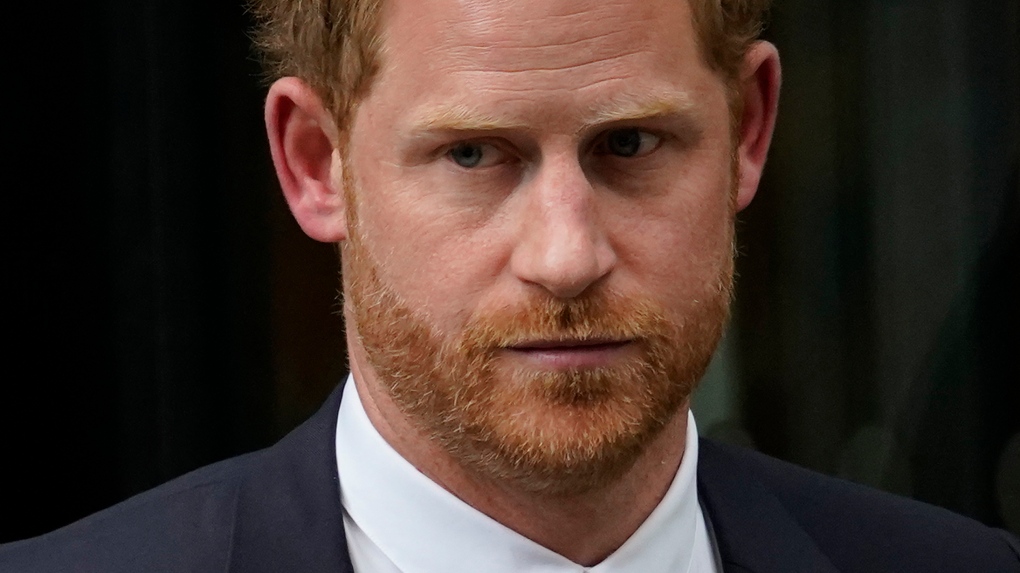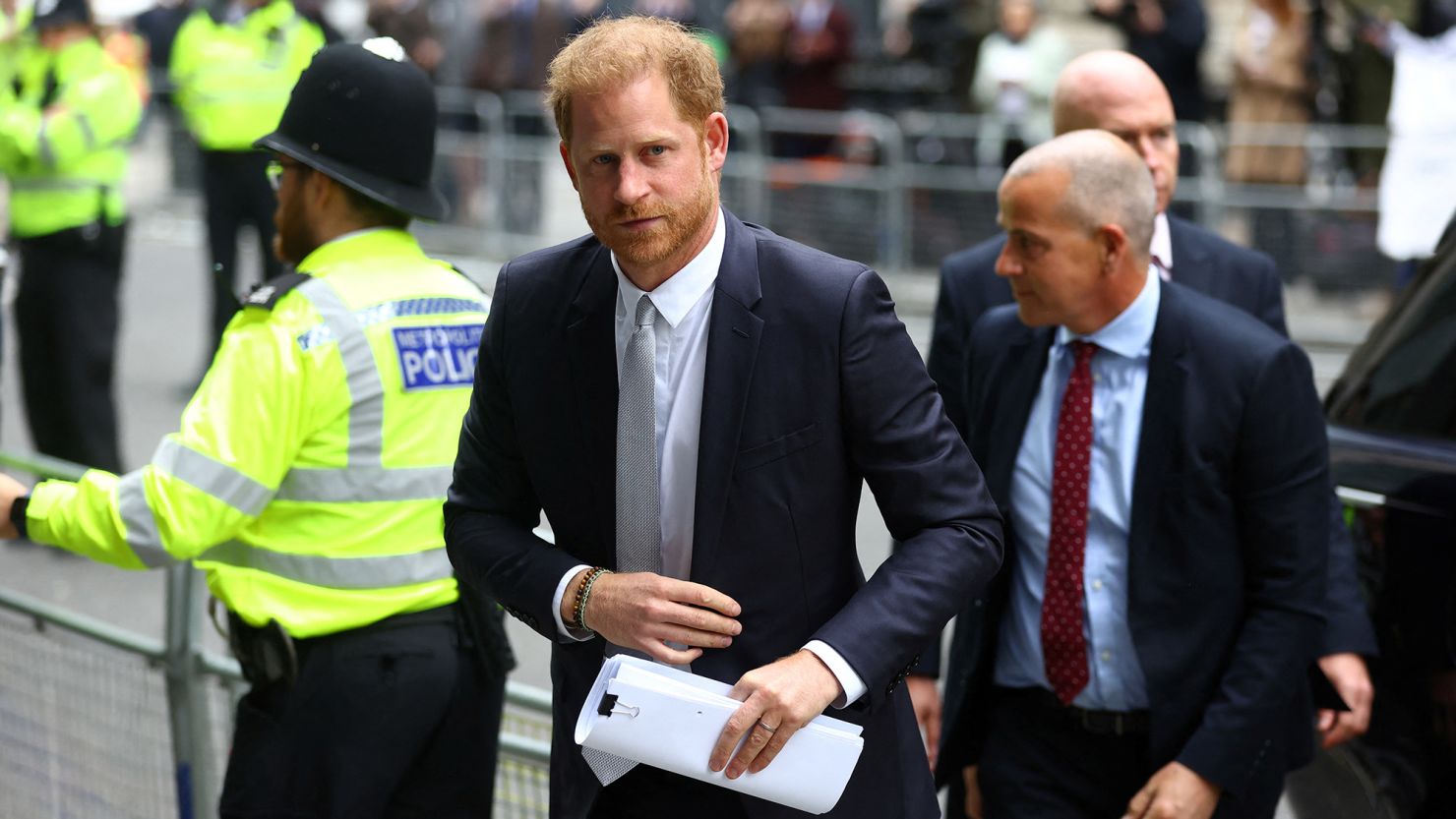LONDON, England – The win of Prince Harry over Mirror Group Newspapers on Friday over what a British judge dubbed “habitual” criminal action is a watershed moment in the long and twisted saga of lawbreaking by Britain’s tabloid press.
Judge Timothy Fancourt decided that the Mirror newspapers had recruited private investigators to snoop on people’s personal information and had engaged in criminal phone hacking for over a decade.
It’s the latest chapter in a long story about tabloid power and attempts to control it — but it’s unlikely to be the last.
In the pre-digital era, Britain’s fiercely competitive tabloid newspapers sold millions of copies daily and would take considerable measures to gain scoops, including using deception.
One way was phone hacking, which involved dialing someone’s number and entering 0000 or another default PIN number to gain access to their voice messages. Quite often, it did.
Members of the royal family, politicians, athletes, celebrities, friends and family of prominent persons, and regular residents who found themselves in the public eye were all targets.
Prince Harry’s Phone Hacking Victory Is A Landmark In The Long Saga Of British Tabloid Misconduct
In his verdict, Fancourt stated that phone hacking was “habitual” at Mirror publications as early as 1998 and continued until at least 2011.
Most people first heard of phone hacking when the royal editor of the News of the World and a private investigator was convicted in 2007 for eavesdropping on messages sent by Prince William and others on royal aides’ phones.
Rupert Murdoch, the paper’s owner, characterized the misbehavior as the work of two rogue employees. Then, in 2011, it was revealed that the News of the World had hacked Milly Dowler’s phone, a 13-year-old girl who had been abducted and eventually found murdered.
The uproar triggered a controversy that forced Murdoch to close the 168-year-old tabloid, Britain’s best-selling newspaper.
The government established a judge-led public inquiry into media ethics to investigate the complicated web of links — close and, some say, too intimate — that bind Britain’s political, media, and police elites. Justice Brian Leveson advocated establishing a powerful press watchdog backed by government regulation. His findings have been largely implemented, but substantial portions of the press have been resistant and fearful of state intervention.
Prince Harry’s Phone Hacking Victory Is A Landmark In The Long Saga Of British Tabloid Misconduct
Judge Fancourt stated that it was obvious that Leveson had not been informed of the whole truth. He claimed that the Mirror’s misconduct “was concealed for years from the board, Parliament, the Leveson Inquiry, shareholders, and the public.”
Following the 2011 discoveries, numerous News of the World editors and executives were charged with illegal phone hacking. Former editor Andy Coulson was sentenced to 18 months in prison in 2014 for conspiring to hack phones after an eight-month trial at London’s Central Criminal Court. Five additional accused were acquitted, while others pleaded guilty.
There have been no additional criminal cases since then, but Murdoch’s News Group and Mirror Group have spent hundreds of millions to settle claims from dozens of claimed victims of hacking and other illicit behavior. Associated Newspapers, the publisher of the Daily Mail, is facing hacking lawsuits from Prince Harry, Elton John, and others.
While many tabloid targets have settled out of court, Prince Harry was adamant about going to court. The Mirror Group action is one of three he has filed against newspaper publishers and is the first to go to trial.
Prince Harry’s Phone Hacking Victory Is A Landmark In The Long Saga Of British Tabloid Misconduct
Harry has made it his mission to tame the tabloid press, which he blames for his mother Princess Diana’s murder, for harassing him throughout his childhood, and for helping drive him and his wife Meghan out of the United Kingdom.
In a statement delivered by his lawyer, David Sherborne, outside the High Court in London on Friday, he said, “Today is a great day for truth, as well as accountability.”
The judge granted Harry a paltry 140,000 pounds ($180,000) in damages, but the case is likely to cost the Mirror Group much more, as the findings may enhance the claims of others who have brought lawsuits against the corporation. To satisfy charges of illegal information harvesting, the publisher has already paid more than 100 million pounds ($126 million).
The judge decided against two of Harry’s co-claimants because they had waited too long to start legal action, giving the firm a partial victory.
On Friday, PLC, Mirror Group’s parent company, stated that the verdict is intended to “reduce the number of live claims, and substantially limit and bar all or most future claims” for prior wrongdoing.
The decision might seriously affect Sly Bailey, the former CEO of Mirror Group’s parent business, and Paul Vickers, the firm’s ex-legal director. The judge said they both knew about the hacking and covered it up.
Prince Harry’s Phone Hacking Victory Is A Landmark In The Long Saga Of British Tabloid Misconduct
It also puts more pressure on Piers Morgan, a former Daily Mirror editor who has consistently denied knowing anything about phone hacking at the tabloid. The judge stated there was “compelling evidence” that editors of all Mirror publications were aware that phone hacking “was being used extensively and habitually.”
“I’ve never hacked a phone or told anyone else to hack a phone,” Morgan said following the verdict on Friday.
People who broke the law, according to Prince Harry, should face criminal proceedings.
“I respectfully call upon the authorities, the financial regulator, the stock market who were deliberately deceived by Mirror Group, and indeed the Metropolitan Police and prosecuting authorities to do their duty for the British public and to investigate bringing charges against the company and those who have broken the law,” the prime minister said in a statement.
SOURCE – (AP)














